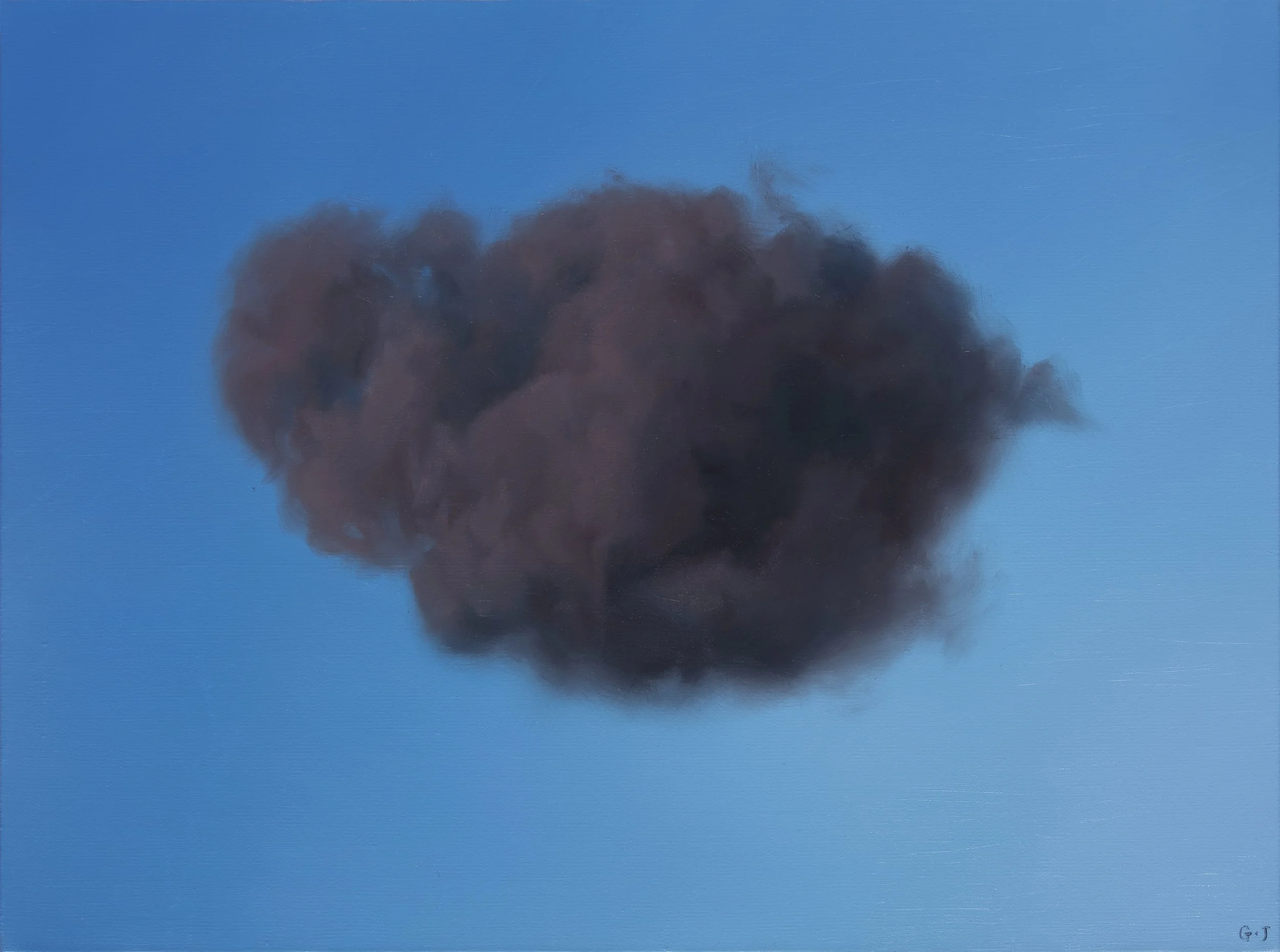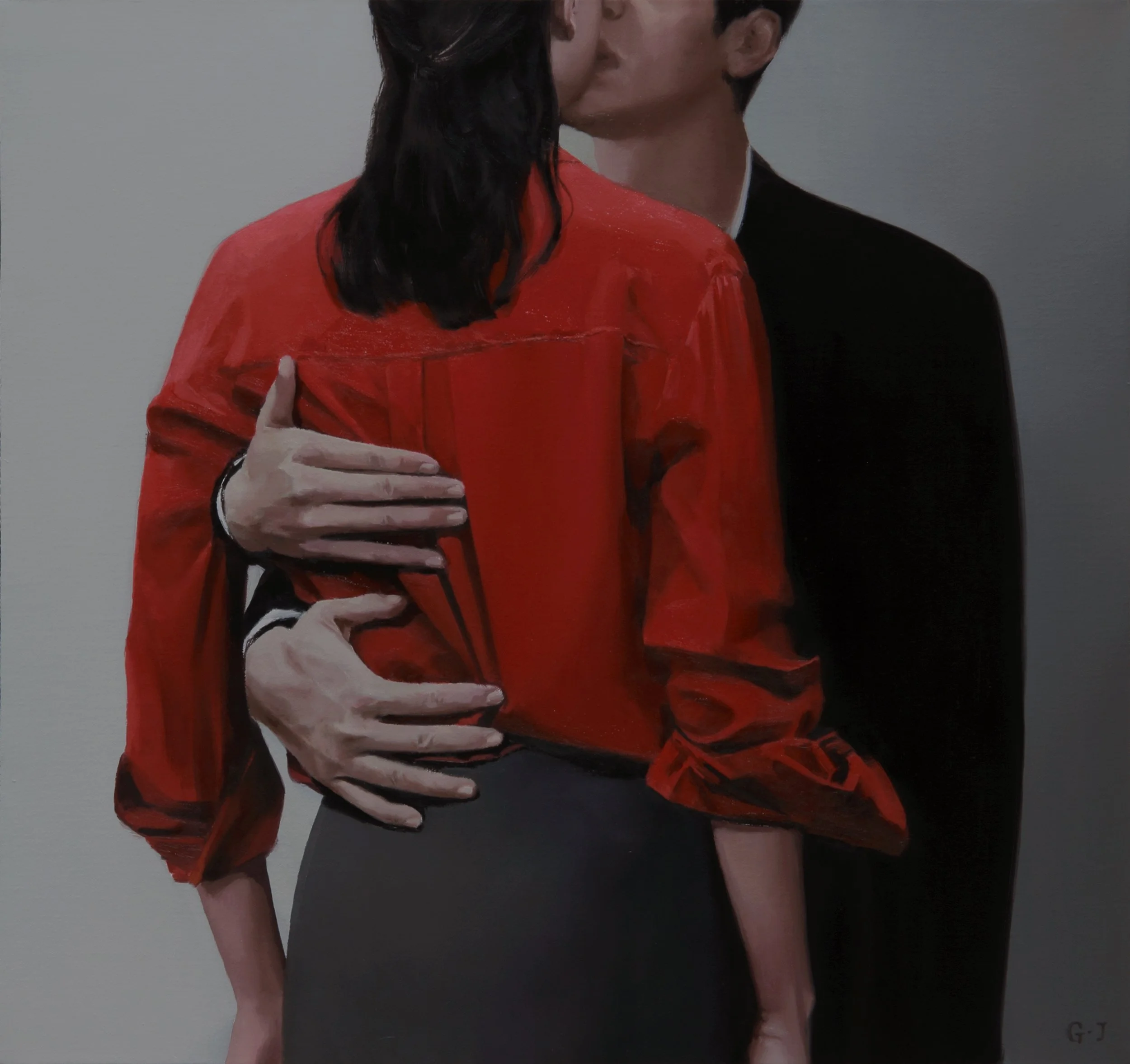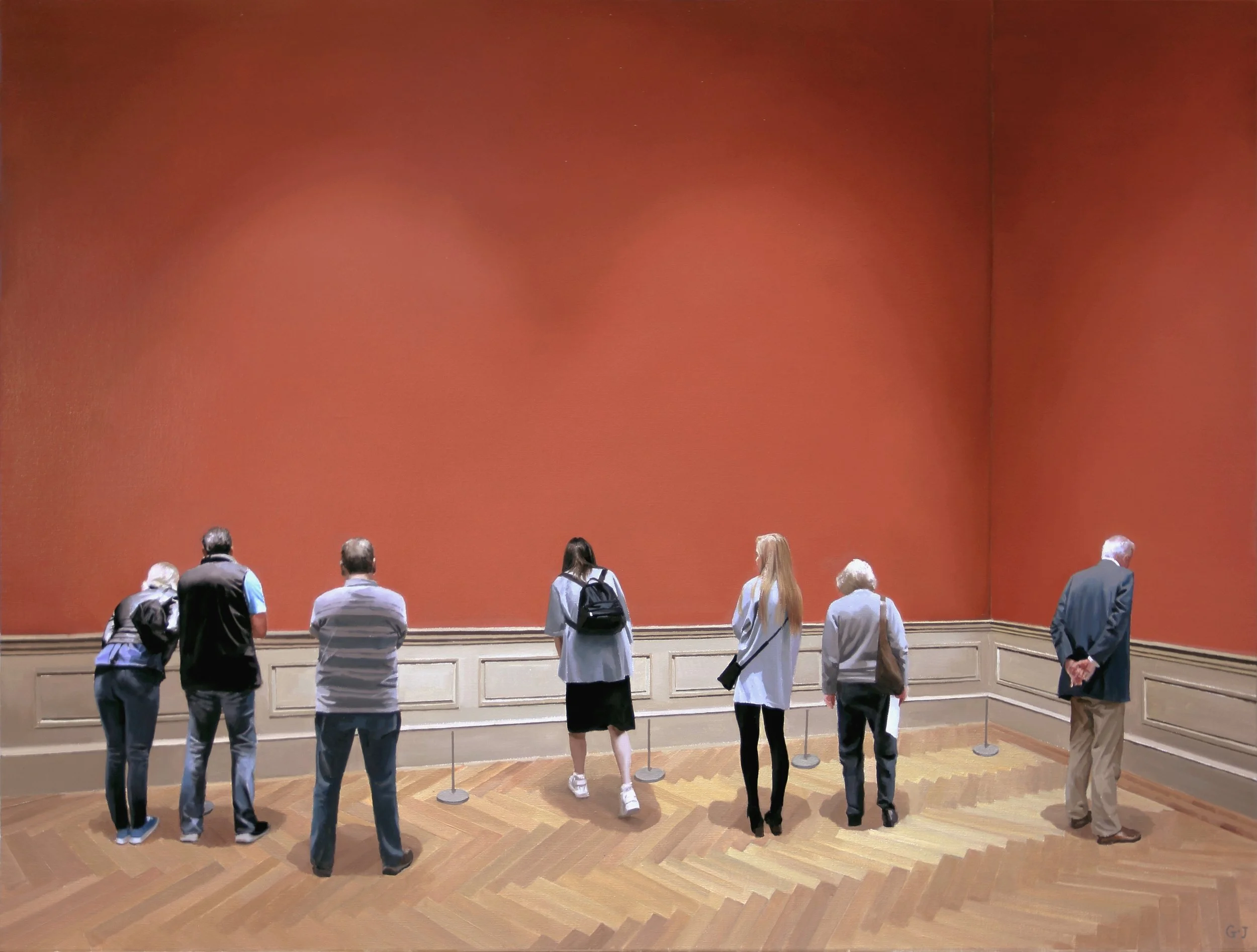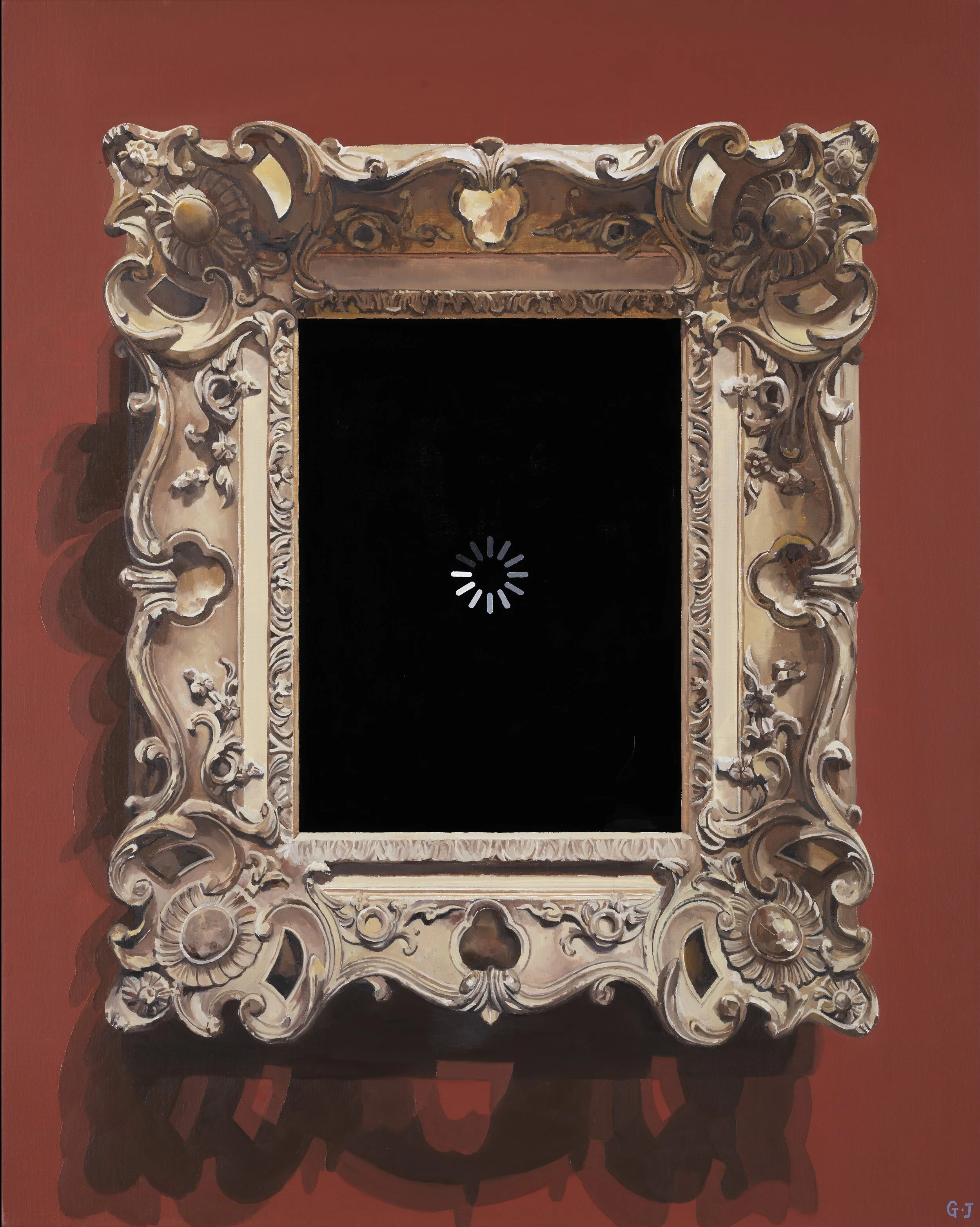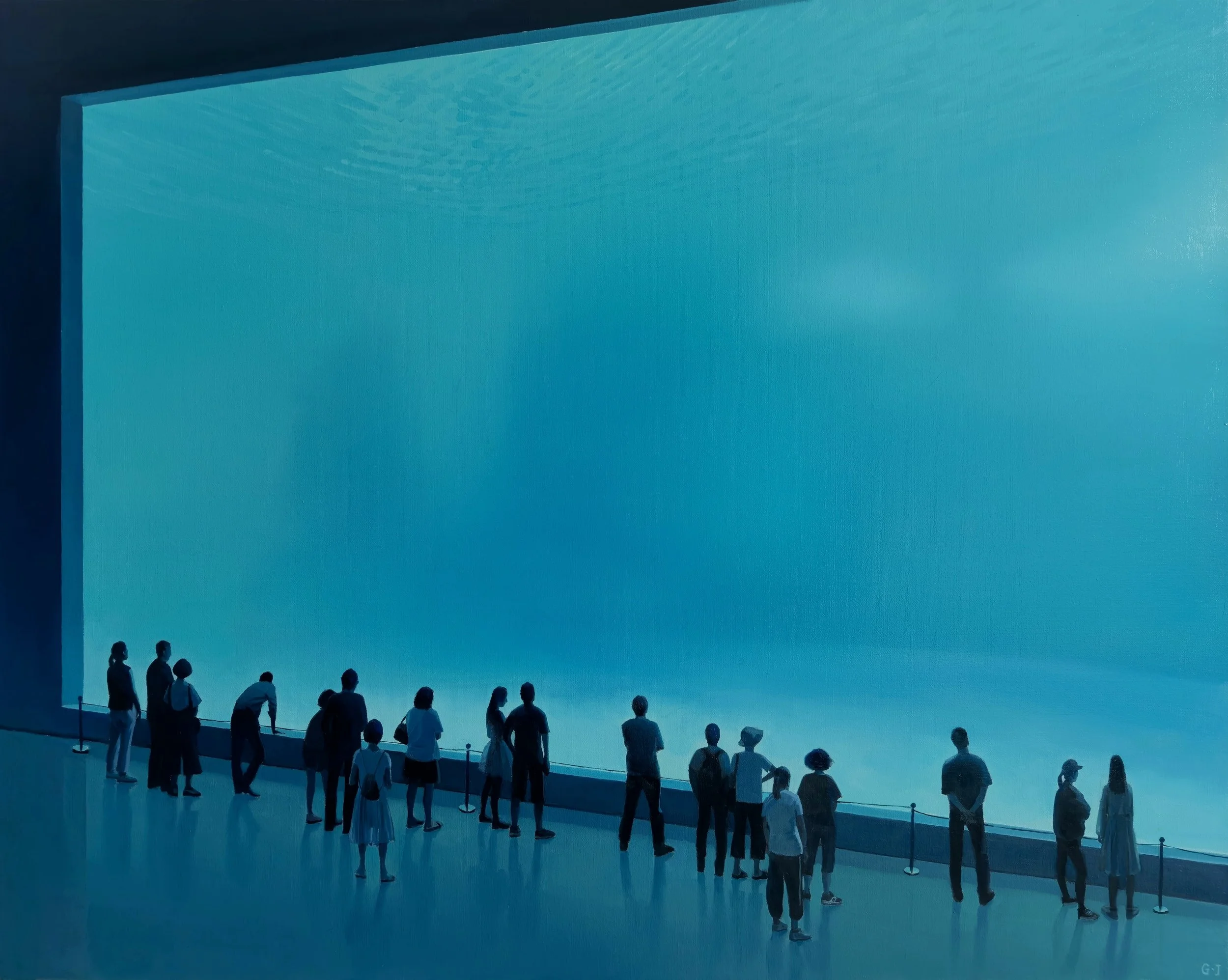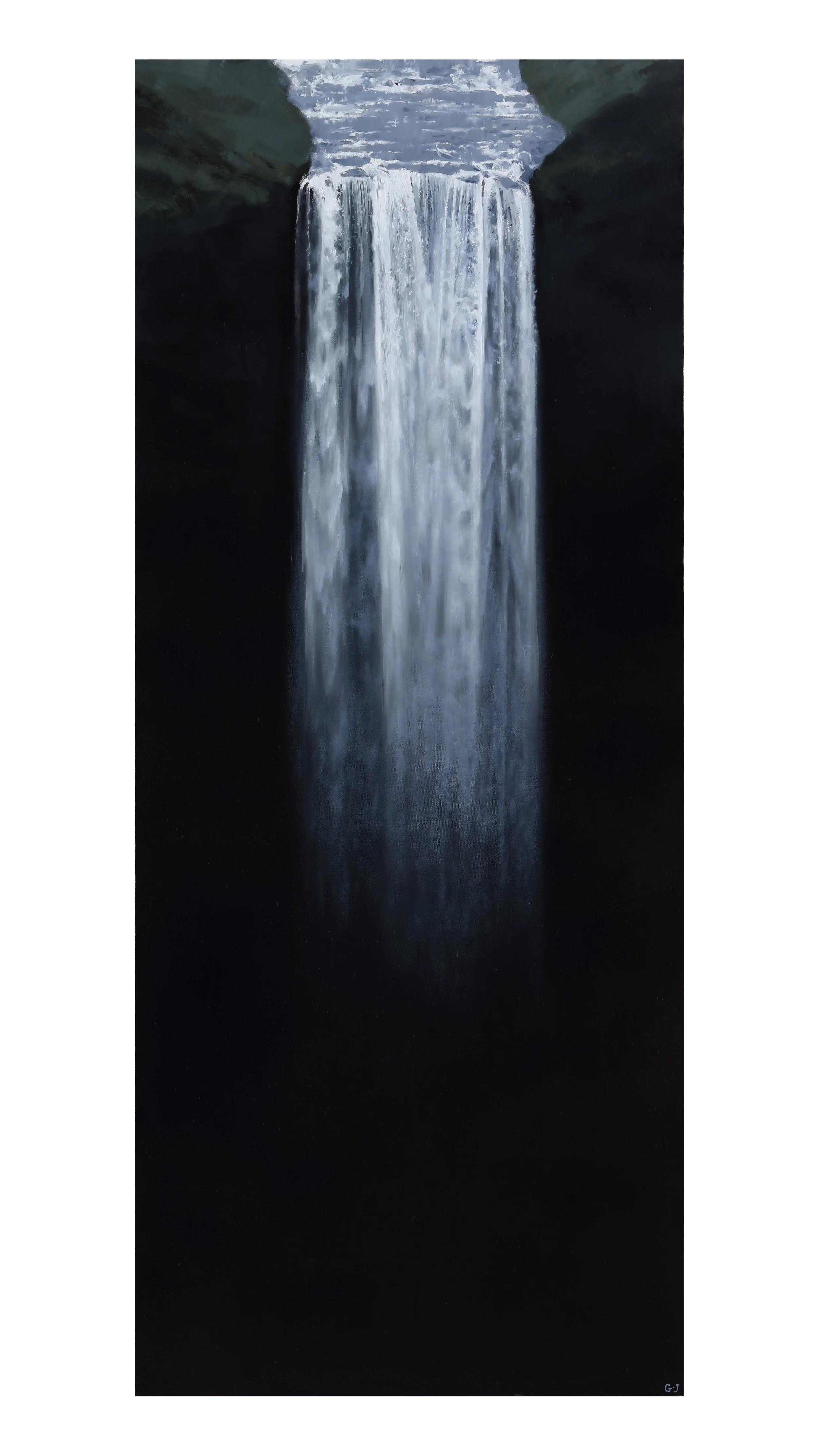
I can create a spectacle by reshaping the sea.
《白床单》 White Bed Sheet
(2022)
An Interview With Guo Jing 郭警
BY DEVA EVELAND
《乌云》 Dark Cloud
(2022)
《吻》 Kiss
(2018)
Why do you paint?
People often say painting is dead. Compared with movies, games, and photography, it may seem to be an outdated art form. But I think a good painting has a static and eternal power of its own.
Could you talk a bit about your background and influences?
I graduated from The Central Academy of Fine Arts. My father was a policeman and my mother is a doctor, so people always wonder how such a family raised an artist. In fact, I think the rational part of my parents’ personality has helped shape my drawing style in some way.
I like painters such as Edward Hopper, René Magritte, Lucian Freud, David Hockney, and so on. They’ve had some influence on me.
Frequently, in your paintings, the subject’s face is obscured—blocked by something, turned away from us, or simply cut off at the top of the frame. However, the hands are doing quite a lot. They grip, gesture, and caress. In “The Kiss”, the hand of a second, hidden lover seems to slyly cradle the woman’s back. Could you talk about your approach to figurative painting in these works?
The face draws the gaze, and the eyes do convey emotion more directly, but it’s too direct and specific for me.
In a way, hands are the second face. Sometimes they can convey emotions better than the face, and the gestures of the hands also reflect people’s desires and motivations. Non-identifiable objects can give the audience a sense of substitution and better express metaphors.
《美术馆 No. 2》 Art Museum No. 2
(2021)
《美术馆 No. 3》 Art Museum No. 3
(2021)
Clouds are a frequent motif in your work. What draws you to them?
Not only clouds, but the sea, wilderness, and other natural landscapes often appear in my paintings. They are simple and free enough.
I can paint a small cloud to express loneliness or create a spectacle by reshaping the sea. These natural elements can be made flexible, abstract, or concrete under the brush.
Several of your works depict the act of looking at art with sardonic wit. Viewers in a museum gawk at blank walls. In other paintings, there is something like a placeholder for a work of art, but it is only a spinning wheel to indicate the image hasn’t loaded, or an icon indicating the image failed to load. Yet the missing paintings within your paintings are set in rococo frames and protected by stanchions. What are you getting at with these works?
One of these paintings is “Art Museum No. 2”. Sometimes people go to art museums not because they love art, but only to be seen as the kind of person who visits art museums. Other ridiculous situations can occur as well. For example, a pair of glasses is dropped on the floor of the gallery, and museum goers, believing it to be a work of art, view and discuss it with great seriousness. Just as Duchamp pointed out by placing a urinal in a gallery, the museum to some extent defines what we understand art to be.
The next work in this series is “Art Museum No. 3”. It also discusses the way people view art. Which one is more real at the moment, a painting transformed into a digital image, or a painting illuminated under the expensive museum lights?
《大鱼》 Big Fish
(2021)
《迢迢》 Long Distance
(2022)
On a related note, do you think the digital age has changed the nature of how we see paintings?
Although the media and technology are changing, just as photography has never replaced painting, the nature of art remains the same. One does not replace the other.
Similar to your Art Museum series, Big Fish also shows us a crowd of people gathered to see, well…something. It looks like an aquarium tank, but we can’t see the creature alluded to in the title. Perhaps the viewers depicted in the painting can. At least they all appear focused on the monumental blue void. Or perhaps they are anticipating something important. How do you see this painting? Is it allegorical?
This painting has a similar expression to Art Museum No. 2; both paintings discuss the mutual influence and definition of the space and the people within it. In a zoo, where the crowds gather, there must be a good show going on. If people gather around a huge aquarium, it’s impossible not to have a big fish in it.
But the truth is, we often follow the crowd and see nothing, then blame ourselves for being late.
Finally, is there something you wish people asked or noticed about your paintings that they often miss?
My painting “Long Distance” is not as direct and clear as some other works, but I like the way it conveys emotions, resolves turmoil, and flows into the unknown.
《影子》 Shadow
(2022)


